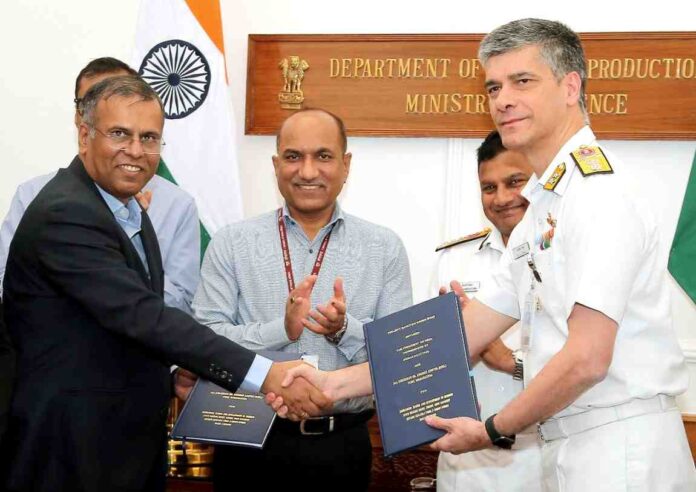APRIL 2: A significant milestone in India’s defence sector was achieved with the signing of a Project Sanction Order under the Make-I category for the design and development of a 6MW Medium Speed Marine Diesel Engine. The agreement was inked between the Indian Navy and Kirloskar Oil Engines Limited, with the signing ceremony taking place at South Block, New Delhi. The event was graced by key figures, including Shri Sanjeev Kumar, Secretary (Defence Production), and Vice Admiral Krishna Swaminathan, Vice Chief of the Naval Staff.
The project, valued at Rs 270 crore, is a crucial step towards achieving self-reliance in the marine engine domain. The prototype diesel engine, which will have over 50% indigenous content, will be developed with 70% of the funding provided by the Government of India. In addition to the 6MW diesel engine, the agreement also includes the development of detailed designs for 3-10MW engines. These engines will play a vital role in powering the main propulsion systems and generating power for ships of the Indian Navy and the Indian Coast Guard.
Until now, India has been heavily dependent on foreign Original Equipment Manufacturers (OEMs) for importing higher capacity marine diesel engines. However, this project marks a turning point in India’s defence production landscape, aiming to break this dependency and establish a robust indigenous capability in marine engine development. The successful completion of this project will lay the foundation for the future manufacturing of advanced marine engines, making India self-reliant in this critical area.
This initiative is a significant step in the government’s ongoing efforts to indigenise critical technologies under the leadership of Prime Minister Shri Narendra Modi. By promoting self-reliance or Aatmanirbharta in defence, the government seeks to reduce reliance on foreign suppliers, save foreign exchange, and enhance the nation’s capabilities in advanced manufacturing and technology development.
The project is expected to not only contribute to the Navy’s and Coast Guard’s operational needs but also catalyze the growth of a defence industrial ecosystem in India. By developing such critical technologies locally, India will be able to strengthen its indigenous defence production, which will have far-reaching implications for national security and economic growth. In addition, it will contribute significantly to the nation’s goal of achieving technological sovereignty in the defence sector, paving the way for more self-reliant, sustainable military operations in the future.




















